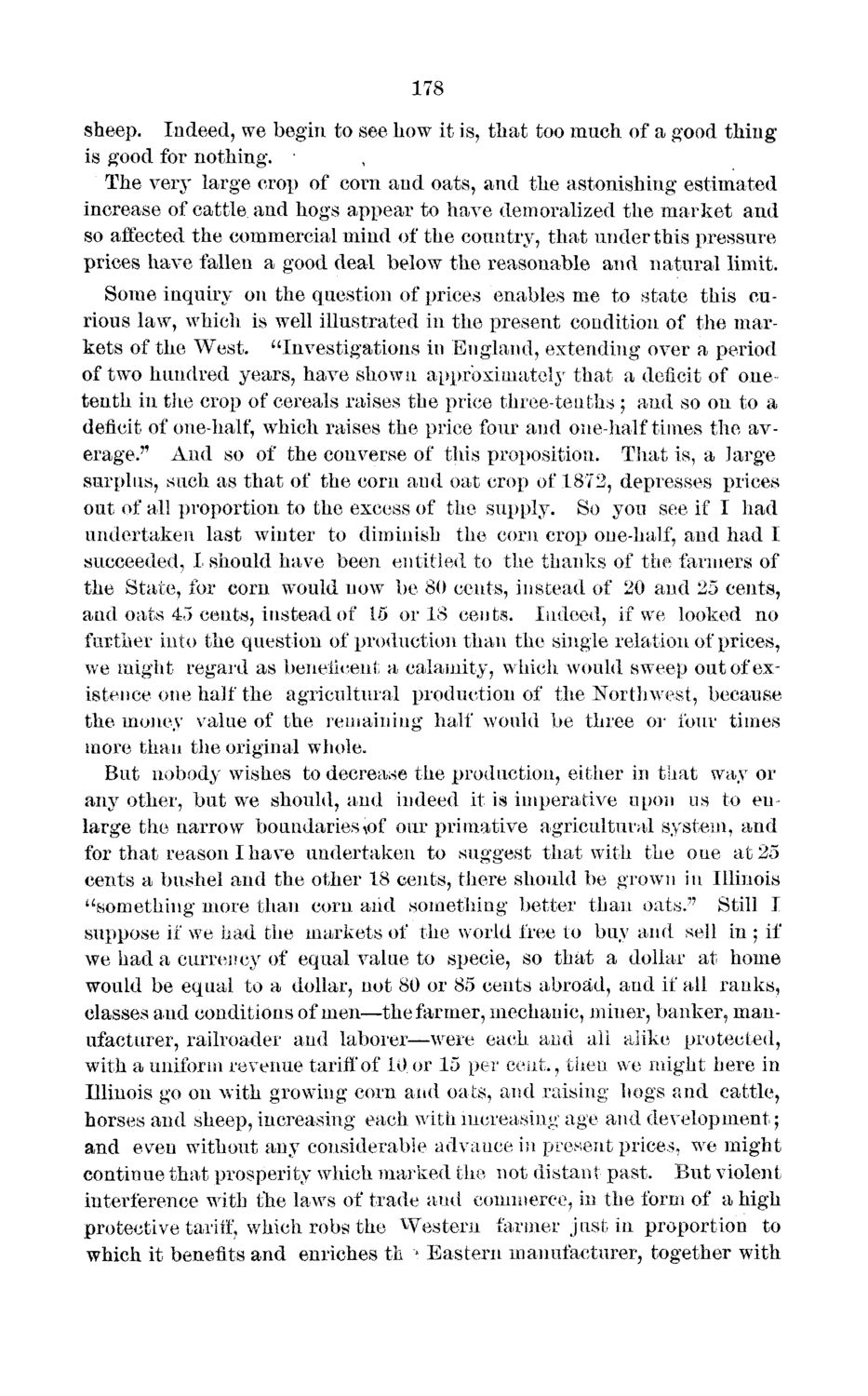| |
| |
Caption: Board of Trustees Minutes - 1873
This is a reduced-resolution page image for fast online browsing.

EXTRACTED TEXT FROM PAGE:
178 sheep. Indeed, we begin to see how it is, that too much of a good thing is good for nothing. The very large crop of corn and oats, and the astonishing estimated increase of cattle and hogs appear to have demoralized the market and so affected the commercial mind of the country, that under this pressure prices have fallen a good deal below the reasonable and natural limit. Some inquiry on the question of prices enables me to state this curious law, which is well illustrated in the present condition of the markets of the West. "Investigations in England, extending over a period of two hundred years, have shown approximately that a deficit of onetenth in the crop of cereals raises the price three-tenths ; and so on to a deficit of one-half, which raises the price four and one-half times the average/' And so of the converse of this proposition. That is, a large surplus, such as that of the corn and oat crop of 1872, depresses prices out of all proportion to the excess of the supply. So you see if I had undertaken last winter to diminish the corn crop one-half, and had I succeeded, I should have been entitled to the thanks of the farmers of the State, for corn would now be 80 cents, instead of 20 and 25 cents, and oats 45 cents, instead of 15 or 18 cents. Indeed, if we looked no further into the question of production than the single relation of prices, we might regard as beneficent a calamity, which would sweep out of existence one half the agricultural production of the Northwest, because the money value of the remaining half would be three or four times more than the original whole. But nobody wishes to decrease the production, either in that way or any other, but we should, and indeed it is imperative upon us to en large the narrow boundaries \o£ our primative agricultural system, and for that reason I have undertaken to suggest that with the one at 25 cents a bushel and the other 18 cents, there should be grown in Illinois "something more than corn and something better than oats." Still I suppose if we had the markets of the world free to buy and sell in ; if we had a currency of equal value to specie, so that a dollar at home would be equal to a dollar, not 80 or 85 cents abroad, and if all ranks, classes and conditions of men—the farmer, mechanic, miner, banker, manufacturer, railroader and laborer—were each and all alike protected, with a uniform revenue tariff of 10 or 15 per cent., then we might here in Illinois go on with growing corn and oats, and raising hogs and cattle, horses and sheep, increasing each with increasing age and development; and even without any considerable advance in present prices, we might continue that prosperity which marked the not distant past. But violent interference with the laws of trade and commerce, in the form of a high protective tariff; which robs the Western farmer just in proportion to which it benefits and enriches th * Eastern manufacturer, together with
| |